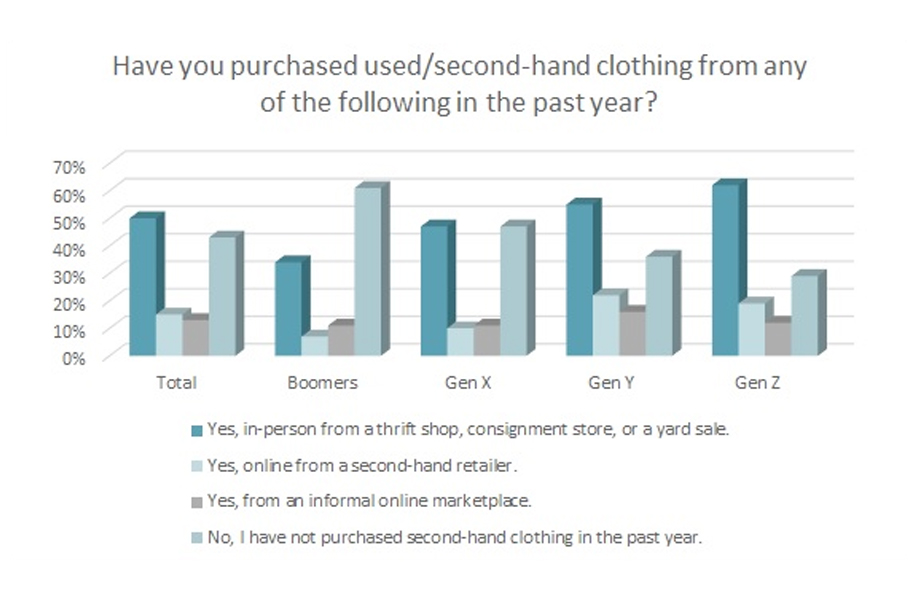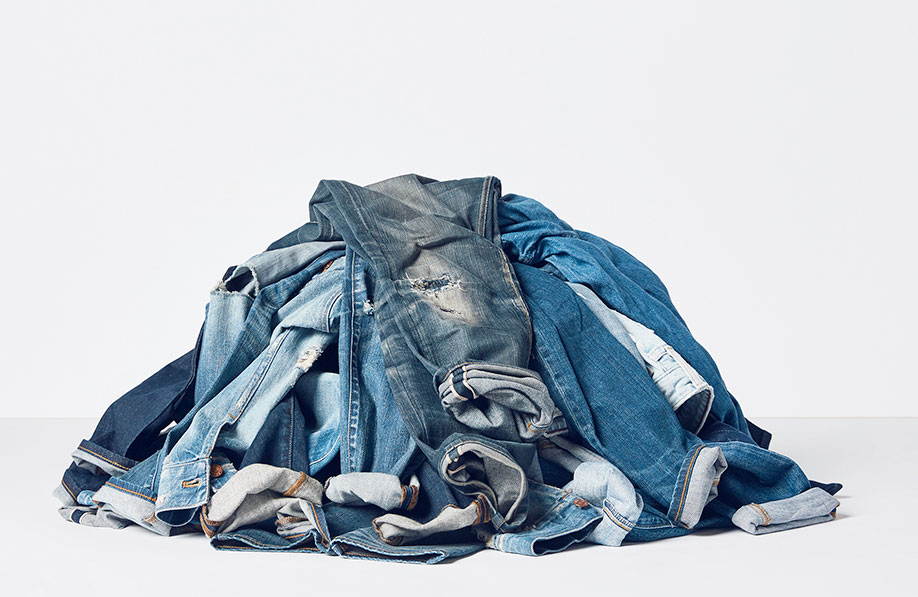The slogan “reduce, reuse, recycle” has been around for decades. But it’s only more recently that the fashion industry has begun examining how such actions could improve their sustainability efforts while giving their clothing a second life. America Recycles Day is taking place November 15 with the aim of raising awareness about how to recycle, repurpose materials, and reduce landfill waste. So, whether it’s reselling pre-owned fashion, using deadstock rather than new textiles or recycling existing fibers, there are plenty of options available to the fashion industry.
I think brands must be responsible for their product all the way to the end-of-life…But you can’t just expect a brand to do that on its own. You have to give them the tools, the support and the channels to actually do that. That’s our goal.”
Rachelle Snyder
CEO, Arrive
Take Seven For All Mankind, which recently established an online resale shop called 7 Revival that is accessed from its website’s home page. In this ecommerce shop, customers can buy certified, pre-owned Seven denim with the confidence that comes with buying new from the brand — but at a price that may be more within reach. Seven For All Mankind’s Heather Mee, chief merchandising officer, recently spoke in New York at a circular fashion panel hosted by Shopify and moderated by Karin Dillie, vice president of partnerships at Recurate, a service that helps brands establish resale platforms on their own ecommerce sites. Mee said Seven started the resale shop for sustainability reasons, but it’s provided more opportunities from there.
“This creates a new entry way for consumers who want a more affordable option or who just want to try the product,” Mee said. “And then for sellers who maybe have older, skinny jeans but want to try new, looser fits or boot cuts, they can list their jeans and get a credit new Sevens while someone else enjoys their pre-owned denim.”
Consumers have already been showing enthusiasm for buying used apparel. In the past year, a little over half of consumers (57 percent) have purchased pre-owned/second-hand clothing in-person from a thrift shop, consignment store or yard sale, or online from sites like thredUP, Poshmark, and The RealReal, according to the Cotton Incorporated Lifestyle Monitor™ Survey. That figure increases significantly to 71 percent among Gen Z shoppers.

Further, nearly half of all consumers (46 percent) expect to purchase more second-hand apparel in the future, according to the Monitor™ research. That number significantly increases to 53 percent among Millennials. Additionally, 74 percent of consumers are interested in circular fashion as a sustainability initiative, and 76 percent are interested in clothing recycling.
Maurices, the women’s fashion retailer, is introducing its Fit Freedom Jean Exchange – a program that falls under the “reuse” aspect of recycling. The initiative allows customers to exchange M Jeans by Maurices for a new size within one year of purchase, for free. The returned jeans are then donated to local organizations to benefit and be reused by women in need in the hometowns of Maurices stores.
Arrive, a new Los Angeles-based venture from Rachelle Snyder, CEO, is a nod to the “renew” facet of recycling. The company gives new life to retailers’ apparel returns. Normally, Snyder says, 80 percent of retail returns can go back to stock. But 20 percent are defective, with problems like deodorant marks, embedded perfume smells or holes. Usually, she says, those items end up in a landfill. But her company is refurbishing such garments so brands can resell them on the resale sections of their websites.
“We currently do this right now with Eddie Bauer,” she says. “They have a resale site called (Re)Adventure. Eddie Bauer ships us all their non-new returns. Arrive then refurbishes them and brings them back to a saleable condition. We grade them to say it’s like new, excellent or good. And then we hold the product and fulfill the order when it’s purchased on their resale site.”
Like Seven For All Mankind’s resale shop, Snyder says the brands she works with use their own photography and images from their product catalog, giving users a “very premium, certified branded experience.” Brands also get to control the pricing. Both factors are very different from, say, Poshmark, which features photographs and prices set by users. Snyder says brand-owned resale sites offer the ability to control one’s own brand while addressing existing returns issues. She adds that if a garment isn’t salvageable, Arrive will also help brands ship them to channels that make sense, like a fabric recycling center.
About one-third of consumers (34 percent) say they are interested in clothing recycling programs that recycle old garments into new clothes, according to Monitor™ research. Of note, 34 percent of shoppers say they’re willing to pay more for clothes that are produced via clothing recycling. Another 32 percent of consumers say they’re more interested in programs that recycle old clothes into new products other than apparel.
Cotton Incorporated created the Blue Jeans Go Green™ denim recycling program in 2006 to encourage denim recycling, create awareness for cotton sustainability, and create opportunities to help those in need. The program has collected more than 4.2 million pieces of denim, thus diverting over 2,100 tons of textile waste from landfills. The old denim is then transformed into new, useful products such as building insulation, thermal packaging insulation, pet bed inserts, and more.
Finally, the use of deadstock fabrics works toward recycling, as it reduces the number of new fabrics that need to be manufactured while extending the life of existing textiles. Recently, Mango, the Spanish fashion retailer, teamed with Recovo, a deadstock fabrics marketplace to support development of more sustainable clothing. The brand Handmade Stories is using deadstock fabrics for its entire Spring ’23 collection. And designer Collina Strada employed deadstock chiffons, velvets, and overdyed lace in her Spring/Summer 2023 collection.
“I think brands must be responsible for their product all the way to the end-of-life,” Snyder says. “But you can’t just expect a brand to do that on its own. You have to give them the tools, the support and the channels to actually do that. That’s our goal.”
